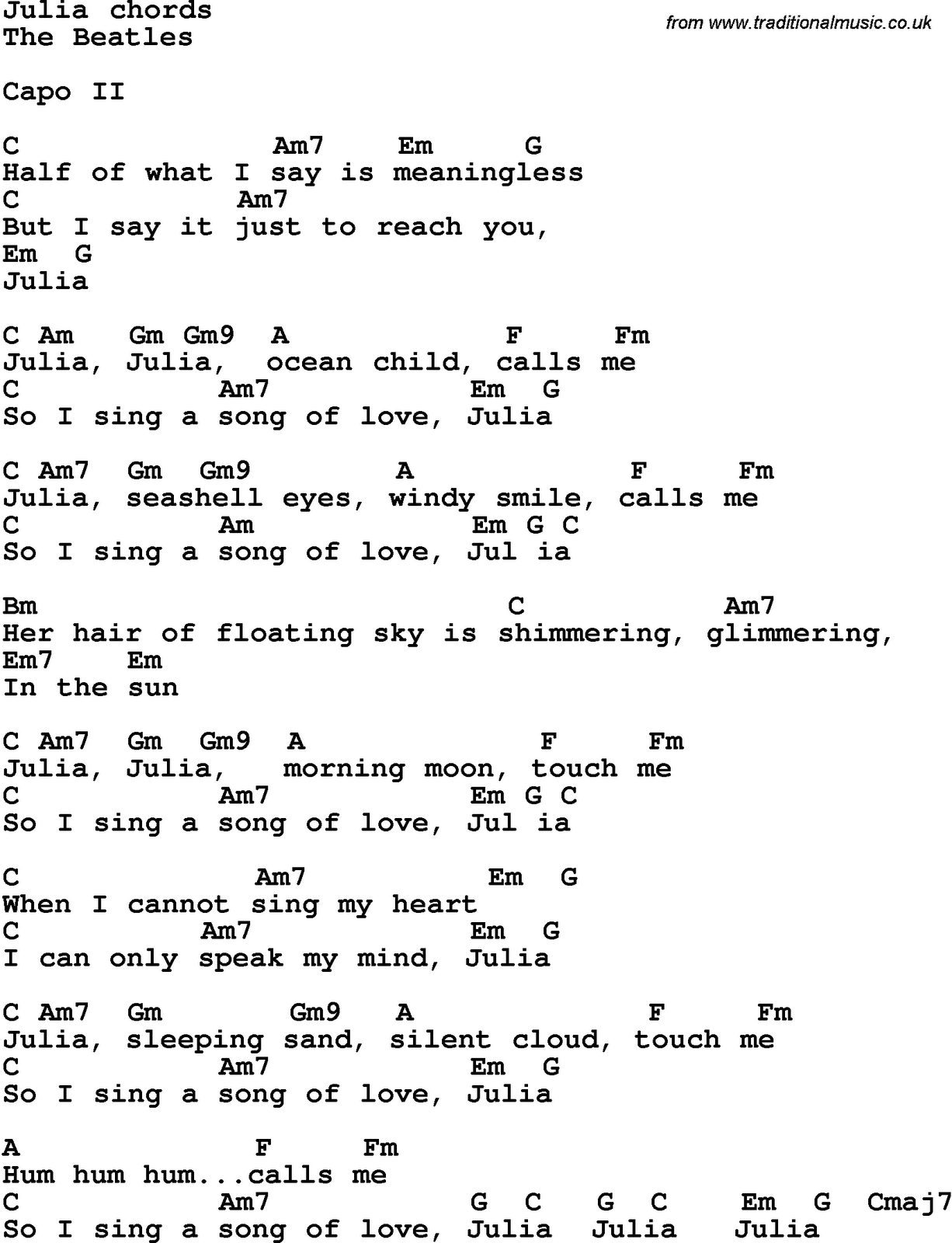

About two years later, with The Beatles in his rearview mirror, he recorded “Mother,” a harrowing excavation of his deep-seated feelings of abandonment concerning his parents. What you do hear is the combination of mantra-like calm and profound yearning he conjures each time he sings his mother’s name. Lennon’s contention that he intermingled the memories of his mother with his then-current emotions for his wife Yoko is hard to hear in the finished product. The bulk of the lyric consists of poetic imagery that speaks of beauty and distance: “Silent cloud” “Morning moon” “Her hair of floating sky.” He borrowed some of the lines from the poem “Sand And Foam” by Kahlil Gibran, including the opening couplet: “Half of what I say is meaningless / But I say it just to reach you.” It must have been strange for fans to hear the leader of the biggest band in the world co-opting a line that evokes ineffectuality, but Lennon was always about upending expectations.

You can unsubscribe at any time by clicking on the unsubscribe link in the footer of the emails. You will receive regular emails form Julian Lennon and The White Feather Foundation. There is an undeniable loneliness evident in his voice, even amidst the double-tracking that Lennon preferred. By entering your details you will be added to the Julian Lennon official mailing list. Using a finger-picking style he learned from Donovan while in India, Lennon plays delicate arpeggios around his fragile yet somehow soothing vocal melody. Lennon is the only Beatle to perform on the track, solo efforts having become commonplace within the Fab Four around this time.

We got our mantra, we sat in the mountains eating lousy vegetarian food and writing all those songs. And all the stuff on the White Album was written in India while we were supposedly giving money to Maharishi, which we never did. “But it was sort of a combination of Yoko and my mother blended into one. In his 1980 interview with Playboy magazine, Lennon explained that the trip to India provided ample opportunity for songwriting, and “Julia” was a byproduct of that. But by the time The White Album rolled around in 1968, all subjects were game, as Lennon and Paul McCartney wrote oodles of material (with George Harrison and, on one song, Ringo Starr also contributing), so much so that a double-album was deemed necessary to contain it all. As John once said, "If art were to redeem man, it could do so only by saving him from the seriousness of life, and restoring him to an unexpected boyishness.The Beatles rarely referenced their personal lives, at least directly, in song in their early years. Today his whimsical expressions of humanity are enjoyed by many critics and collectors alike as they are display in institutions such as the The Museum of Modern Art in New York.Īrt was another way for Lennon to express the wit, wisdom, and whimsey that made him one of the most important cultural figures of our time. Julia Lyrics by The Beatles from the White Album Bootleg Planet album - including song video, artist biography, translations and more: Half of what I. Lennon illustrated his 3 best selling books that were published in the 1960s. He focused on line drawing, using sumi ink or a pen to create beautiful line illustrations. Long before he was a celebrated musician with The Beatles, Lennon was studying his first love at the esteemed Liverpool Art Institute. John Lennon (1940 - 1980) was a contemporary musician, song writer, poet, philosopher and artist, whose message across all professions, was peace and harmony.

Please contact us for our reasonably priced archival framing options.
#Julia lennon lyrics plus#
This serigraph is from the 1995 release of "The Beatle Years" Portfolio, which included ten serigraphs of Lennon's handwritten lyric sheets in an one time only edition of 1,000 plus Proofs. This limited edition was released by Bag One Arts (The Lennon Estate) in 1995, and has been sold out from the publisher since 2000. About Rare Limited Edition Serigraph of John Lennon's handwritten lyrics for the song "Julia" first released on the Beatles "White Album" in 1968 and written about John's mother.


 0 kommentar(er)
0 kommentar(er)
